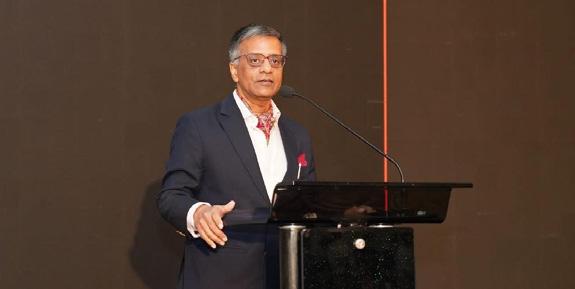
2 minute read
Pakistan a hub of state-sponsored terror & WMD threat, says Indian High Commissioner
Canberra, May 13 (Australia India News Newsdesk)
In a candid interview with Stephen Dziedzic of ABC News, India's High Commissioner to Australia, Gopal Baglay, issued a strong indictment of Pakistan’s continued role in fostering terrorism and destabilising regional security. He described Pakistan as hosting an "Unholy Trinity"—a combination of antiIndia state policy, a clandestine Weapons of Mass Destruction (WMD) programme, and statesponsored terrorism.
High Commissioner Baglay drew attention to Pakistan’s decadeslong strategy of waging a proxy war on India through what he called a "thousand-year war" doctrine, with the intent to "bleed India through a thousand cuts."
He said this strategy has enabled cross-border terrorism for over forty years, protected under Pakistan’s nuclear umbrella.
“Pakistan serves as the ‘silk route’ of global terror,” Baglay stated, highlighting its role in facilitating terrorism beyond the region. He also unveiled what he referred to as Pakistan’s "3-D strategy"— Deny, Deflect, and Delay— used systematically to evade accountability for the presence of terrorist infrastructure within its territory.
Recalling the Bali bombings of 2002 and 2005, in which Australian lives were lost, and the recent Pahalgam terror attack of April 2025, Baglay underlined the global cost of terrorism and placed full responsibility for the escalation on Pakistan.
The High Commissioner dismissed any notion of equivalence between India and Pakistan as nuclear powers. He pointed out that India follows a clearly stated "No First Use" policy and has maintained transparency in its nuclear doctrine, in stark contrast to Pakistan’s opaque and illicit nuclear development, which he said poses a serious threat to global security.
He also criticised certain international narratives that blur the distinction between terrorist perpetrators and victims, calling for more consistent and factbased reporting of cross-border terrorism inflicted on India.
Concluding the interview, Baglay reaffirmed India’s peaceful and developmental vision. “India remains committed to becoming a ‘Viksit Bharat’ (Developed India) by 2047 and will continue to work with partners like Australia for regional prosperity and global good,” he said.










